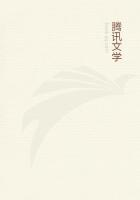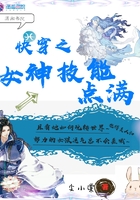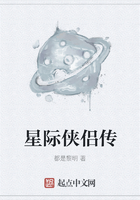And now for the first time my courage completely failed me. It is enough to say that I was penniless, and a prisoner in a foreign country, where I had no friend, nor any knowledge of the customs or language of the people. I was at the mercy of men with whom I had little in common. And yet, engrossed as I was with my extremely difficult and doubtful position, I could not help feeling deeply interested in the people among whom I had fallen. What was the meaning of that room full of old machinery which I had just seen, and of the displeasure with which the magistrate had regarded my watch? The people had very little machinery now. I had been struck with this over and over again, though I had not been more than four-and-twenty hours in the country. They were about as far advanced as Europeans of the twelfth or thirteenth century;certainly not more so. And yet they must have had at one time the fullest knowledge of our own most recent inventions. How could it have happened that having been once so far in advance they were now as much behind us? It was evident that it was not from ignorance.
They knew my watch as a watch when they saw it; and the care with which the broken machines were preserved and ticketed, proved that they had not lost the recollection of their former civilisation.
The more I thought, the less I could understand it; but at last Iconcluded that they must have worked out their mines of coal and iron, till either none were left, or so few, that the use of these metals was restricted to the very highest nobility. This was the only solution I could think of; and, though I afterwards found how entirely mistaken it was, I felt quite sure then that it must be the right one.
I had hardly arrived at this opinion for above four or five minutes, when the door opened, and a young woman made her appearance with a tray, and a very appetising smell of dinner. Igazed upon her with admiration as she laid a cloth and set a savoury-looking dish upon the table. As I beheld her I felt as though my position was already much ameliorated, for the very sight of her carried great comfort. She was not more than twenty, rather above the middle height, active and strong, but yet most delicately featured; her lips were full and sweet; her eyes were of a deep hazel, and fringed with long and springing eyelashes; her hair was neatly braided from off her forehead; her complexion was simply exquisite; her figure as robust as was consistent with the most perfect female beauty, yet not more so; her hands and feet might have served as models to a sculptor. Having set the stew upon the table, she retired with a glance of pity, whereon (remembering pity's kinsman) I decided that she should pity me a little more.
She returned with a bottle and a glass, and found me sitting on the bed with my hands over my face, looking the very picture of abject misery, and, like all pictures, rather untruthful. As I watched her, through my fingers, out of the room again, I felt sure that she was exceedingly sorry for me. Her back being turned, I set to work and ate my dinner, which was excellent.
She returned in about an hour to take away; and there came with her a man who had a great bunch of keys at his waist, and whose manner convinced me that he was the jailor. I afterwards found that he was father to the beautiful creature who had brought me my dinner.
I am not a much greater hypocrite than other people, and do what Iwould, I could not look so very miserable. I had already recovered from my dejection, and felt in a most genial humour both with my jailor and his daughter. I thanked them for their attention towards me; and, though they could not understand, they looked at one another and laughed and chattered till the old man said something or other which I suppose was a joke; for the girl laughed merrily and ran away, leaving her father to take away the dinner things. Then I had another visitor, who was not so prepossessing, and who seemed to have a great idea of himself and a small one of me. He brought a book with him, and pens and paper--all very English; and yet, neither paper, nor printing, nor binding, nor pen, nor ink, were quite the same as ours.
He gave me to understand that he was to teach me the language and that we were to begin at once. This delighted me, both because Ishould be more comfortable when I could understand and make myself understood, and because I supposed that the authorities would hardly teach me the language if they intended any cruel usage towards me afterwards. We began at once, and I learnt the names of everything in the room, and also the numerals and personal pronouns. I found to my sorrow that the resemblance to European things, which I had so frequently observed hitherto, did not hold good in the matter of language; for I could detect no analogy whatever between this and any tongue of which I have the slightest knowledge,--a thing which made me think it possible that I might be learning Hebrew.
I must detail no longer; from this time my days were spent with a monotony which would have been tedious but for the society of Yram, the jailor's daughter, who had taken a great fancy for me and treated me with the utmost kindness. The man came every day to teach me the language, but my real dictionary and grammar were Yram; and I consulted them to such purpose that I made the most extraordinary progress, being able at the end of a month to understand a great deal of the conversation which I overheard between Yram and her father. My teacher professed himself well satisfied, and said he should make a favourable report of me to the authorities. I then questioned him as to what would probably be done with me. He told me that my arrival had caused great excitement throughout the country, and that I was to be detained a close prisoner until the receipt of advices from the Government.















